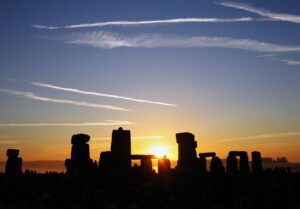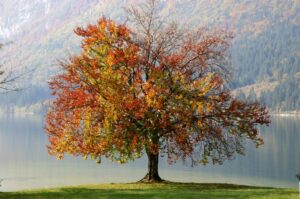Lot’s Wife
Shalom,
I wanted to begin my pages today by coloring them with a series of Winter Celebration greetings from as many religious and ethnic groups as possible. An Internet search for what I had expected to be a simple and limited list, turned out to be an awakening of epic proportions, as to how observant the peoples of the world are to the cycles of Nature.  Despite commercialization of the winter holidays, cultures all over the world have traditions for rituals that momentarily freeze frame the passage of the shortest day and longest night in order to transform the immutable reality that even the darkest march into night is a passing phase, guaranteed to pass, and cycle back towards light.
Despite commercialization of the winter holidays, cultures all over the world have traditions for rituals that momentarily freeze frame the passage of the shortest day and longest night in order to transform the immutable reality that even the darkest march into night is a passing phase, guaranteed to pass, and cycle back towards light.
Why is this passage a universal observance? we all recognize the strangeness of seasonality, that is, that every day does not bring the same old, same old with regard to weather and day length. This goes beyond the mere becoming an historical marketing issue, with the production of physical comforts, warm clothes in winter, lighter ones in summer, of gathering in food in its season and living off of it in the inclement ones. What we notice in the unevenness of the seasons, the passage from light to dark to light again teach us something about ourselves, that we, too, have dark times, sink into coldness and dearth of personal provisions. The challenge at those times is to remember what the seasons do.
I am in bed with a chest and sinus cold that will not go away. My usual perky attitude about winning over a cold, intentional attention to self-care, food, rest, engaging with interests, thinking about others, is not working! I am miserable and as a creative person, constructing amazing scenarios about what I could have done to avoid this cold: taken better care of myself, gone more times to the health center, had less work and more fun, maybe I had ‘too much’ fun (some of the scenarios are hopelessly contradictory), what I ate or should have eaten, went out too much, stayed home and isolated myself too much. Is any of this familiar?
As a student Cantor, I have found my cold to be particularly annoying, because my ears are plugged up and I can’t hear well, and I can barely talk without coughing, let alone sing. My scenario creator has capitalized on this, too. “Maybe I’m too old to be doing this. Maybe I’m too old to take on a new career, Maybe I’m too old to learn how to sing, Maybe I’m too old to move to New York  and go to school full time. Maybe I should do what people my age do, go on a cruise someplace sunny, the Mediterranean, visit the Southwest…”
and go to school full time. Maybe I should do what people my age do, go on a cruise someplace sunny, the Mediterranean, visit the Southwest…”
And then I heard my own nascent Cantor/Chaplain’s compassionate voice take over. “There is nothing new under the sun, nothing unique or obscure is happening right now!” what does my heritage tell me about all this self-reflective shoulda coulda woulda stuff? Here’s what I can share:

Lot and his unnamed wife (Genesis 11-19). As they flee the destruction of Sodom, the anonymous wife breaks the momentum of moving forward, and for a moment glances back to reconsider the familiar life they’d left behind; and she becomes a pillar of salt. As a child I always hated that Gd did that, what an outlandish punishment for a simple turn of the head! As an adult, though, I get the message of this metaphor: keep moving, although the past is seductive in its familiarity, it never remains, and to wish to dwell there is paralyzing.
This is a really important theme, revisiting the past when the present is iffy, and the future not lain out with certainties. We all have doubts and second thoughts; the trick is to not act on them. In the Tanakh, The story of Lot’s wife graphically shows us how we short-circuit ourselves when we hesitate at what lies ahead.
On the popular front, My father, z”l, who had little formal religious knowledge, had often counseled me from the places he found inspiration, such as sports: Satchel Paige, the famous black baseball pitcher who was one of the first to break the color barrier in American baseball, was famous for his quotes, among them, “Never Look Back”.  A film buff friend finds solace from the Pixar film, “Finding Nemo”; when Nemo is fleeing for his life, his friends counsel him: “Keep Swimming!”. I find inspiration in recalling my own growing practice of sharing my music and listening to others’: I did eek out one night this week of lighting Hannukah candles at a Seniors’ Home before calling myself in sick. I found inspiration from the residents who talked strongly about the value they found in sitting in darkness and stillness, knowing that Gd, like the seasons, will restore the light.
A film buff friend finds solace from the Pixar film, “Finding Nemo”; when Nemo is fleeing for his life, his friends counsel him: “Keep Swimming!”. I find inspiration in recalling my own growing practice of sharing my music and listening to others’: I did eek out one night this week of lighting Hannukah candles at a Seniors’ Home before calling myself in sick. I found inspiration from the residents who talked strongly about the value they found in sitting in darkness and stillness, knowing that Gd, like the seasons, will restore the light.
I’ve had a lot of regrets this week, ways to examine how and why I am in bed missing so much. Looking back hasn’t been serving me well, looking at today and all the things I can indulge in, like reading, writing, teaching myself how to use my new music-writing software, catching up on correspondences, works. I will have to let go of my classes and volunteering to light Hannukah candles with seniors this week, but I know that just like so many cultures do at the winter solstice, I can mark this time as a period of latency and growth, and am grateful that I can look forward to the light of restored health at the end of the tunnel.
This time of year there are many greetings, such as, “Joyous Kwanzaa”, “Diwali Mubarak”, “Happy Hannukah”, “Merry Christmas”; what will yours be?


